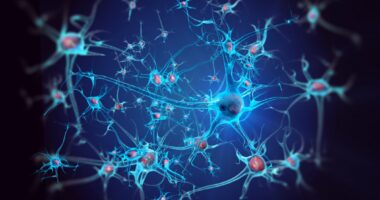Patient Dosing Starts in Phase 2 Clinical Trial of Oral SAR443820

A Phase 2 clinical trial has begun dosing patients to evaluate the safety and effectiveness of Denali Therapeutics‘ investigational oral therapy SAR443820 in people with amyotrophic lateral sclerosis (ALS).
The study, dubbed HIMALAYA (NCT05237284), is recruiting about 260 adults at sites in the U.S., Belgium, France, Germany, and the Netherlands who have been diagnosed with ALS in the past two years. More information can be found here.
“ALS is a devastating neurodegenerative disease for which effective treatment options are a critical unmet medical need,” Nazem Atassi, MD, the global head of early neurology development at Sanofi, said in a press release.
Under a collaboration agreement with Denali, Sanofi is leading SAR443820’s Phase 1 and Phase 2 development for ALS and multiple sclerosis (MS) and will co-lead Phase 3 trials in ALS, MS, and Alzheimer’s disease with Denali.
“We are very encouraged by the results from the Phase 1 trial of SAR443820 in healthy volunteers in which robust target engagement was demonstrated at doses that were generally well tolerated,” Atassi said. “Based on these results, we are excited to start the HIMALAYA Phase 2 ALS study and look forward to working with Denali and the ALS community to advance the development of this novel investigational therapy.”
Denali will receive a $40 million milestone payment from Sanofi related to the start of the HIMALAYA trial and is entitled to receive additional development and regulatory milestone payments.
“The initiation of this Phase 2 study marks a significant milestone in the SAR443820 development program and our RIPK1 inhibitor collaboration with Sanofi,” Carole Ho, MD, Denali’s chief medical officer, said. “Denali is committed to collaborating with the ALS community as we work toward a unified goal of developing potentially life-saving therapeutics for people living with ALS.”
SAR443820 (also known as DNL788) is an orally available small molecule that works by suppressing RIPK1, an enzyme whose over-activation is associated with abnormal microglia activity and nerve cell death. Microglia are the immune cells of the central nervous system (CNS), the brain and spinal cord.
RIPK1 levels and activity are significantly increased in the spinal cords of ALS patients, and overly active pro-inflammatory microglia are implicated in ALS and other neurodegenerative diseases.
SAR443820 can cross the blood-brain barrier, a highly selective membrane that regulates what substances in the bloodstream can access the CNS and often prove a challenge for CNS-targeting therapies.
Suppressing RIPK1 was previously shown to ease disease progression in preclinical models in ALS, MS, and Alzheimer’s.
SAR443820 received fast track designation last year from the U.S. Food and Drug Administration for treating ALS, which is meant to speed the therapy’s clinical development and regulatory review.
In a previous Sanofi-sponsored Phase 1 trial (NCT04982991) involving 14 healthy Chinese and Japanese adults, three ascending doses of SAR443820 were shown to be generally well tolerated and to bind effectively to the RIPK1 enzyme.
Based on these findings, Sanofi launched the two-part HIMALAYA Phase 2 trial to evaluate the therapy’s safety, pharmacokinetics, pharmacodynamics, and effectiveness in ALS patients. Pharmacokinetics refers to the therapy’s movement into, through, and out of the body, while pharmacodynamics comprises its effects in the body.
In its part A, participants will be randomly assigned in a 2:1 ratio to receive an oral tablet of either SAR443820 or a placebo, twice a day, for 24 weeks (nearly six months). Patients completing the first part will be able to roll over to the trial’s second, open-label extension part, in which all will receive the therapy for about 1.5 years.
HIMALAYA’s main goals are to assess changes in functional disability using the ALS Functional Rating Scale-Revised (ALSFRS-R) at the end of the study’s first part, and a combined assessment of functional status and survival at week 52 (about one year).
Secondary goals include changes in lung function, muscle strength, patient-reported health status, and the blood levels of neurofilament light chain, a biomarker or neuronal damage, as well as safety and pharmacological measures.
The trial is expected to end in April 2025, and top-line data might be available late next year.






